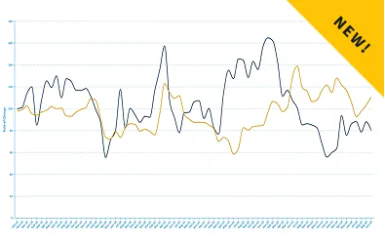2017 Go RVing Future Ready Research: Executive Summary
Introduction
Born between 1982-2000, 85M millennials are now adults with growing consumer purchasing power. The RV industry, among others, is busy engaging and doing business with this excitingly large but complex new consumer segment. As millennials are very different from baby boomers, Go RVing sought to deepen its understanding of this new market landscape. In 2017, a consumer research study was commissioned with Crewest Studio/Label Networks to survey the perceptions and opinions of Americans between the ages of 18-44 years.
Objectives
The objectives of the Future Ready Market Study were defined as:
- Seek and identify consumer trends critical to future success of the RV industry
- Test widely held social and economic assumptions in order to uncover and understand truths about the millennial generation
- Identify the strongest and most prominent barriers to entry into the RV category among 18-44-year-olds and the potential pathways to product trial and purchase
- Enhance Go RVing’s existing body of market research and consumer intelligence
Methodology
The Future Ready Study surveyed 2,826 Americans, between 18-44 years old, resulting in an average age of 31 across the study participants. The representative survey sample comprised a cross-section of the US population based on U.S. Census Data. The study consisted of approximately 50 questions and was deployed online in 48 U.S. locations. Respondents were 51.5% female, 49.7% were married with 33.5% residing in the suburbs and 44.7% in the city. Approximately 51.7% of respondents earned $50K+ annually.
Key Findings
The Future Ready Market Study was in-depth, and its findings are complex and insightful. Compared to baby boomers, millennial adults are very different. They came of age during uncertain and disruptive times; globalization, free trade, digital revolution, technological disruption, economic disparity, political and religious terrorism, military war, climate change, et al. Understanding and engaging today’s millennial consumers on their terms will be essential for the RV industry — any industry — to sell them products and gain their long-term loyalty. Here are ten key findings of the Future
Ready Market Study
- Survey respondents between the ages of 27-36 expressed interest in owning an RV. We call them Future Ready Experiencers. Their average age is 33.
- Future Ready Experiencers are the sub-set of millennials who are more likely to buy an RV compared to other millennials.
- Future Ready Experiencers have very active lifestyles, seek out cool life experiences, adopt new technology early and are very active on social media. They embrace disruption.
- Future Ready Experiencers are primarily urban, educated, married with kids and own a home.
- Future Ready Experiencers love to travel and enjoy driving as an activity; many currently own some type of outdoor toy vehicle such as a motorboat, jet ski, ATV, motorcycles, etc.
- Future Ready Experiencers are not content to sit around outdoors, relax and do nothing;
- Future Ready Experiencers want to “do it all” and enjoy as many activities and experiences as possible when they travel.
- Future Ready Experiencers perceive the top barriers to RV ownership as affordability, ability to gain financing due to existing debt, cost of maintenance, lack of storage
- When considering an RV purchase, comfort, safety and price are most important to Future Ready Experiencers
- Future Ready Experiencers appreciate the convenience and freedom RVs provide
Conclusion
Future Ready Experiencers, and Millennials generally, represent an exciting opportunity for the RV industry. The RV industry is in a position to benefit from their growing purchasing power but, Future Ready Experiencers are a complex, fickle and sometimes contradictory consumer segment. To engage them effectively and sustain success into the future, the RV industry must adopt a new mindset and business plan and learn to engage and build trust with this new consumer in the living spaces where they reside.
Please Sign in to View
Log in to view member-only content.
If you believe you are receiving this message in error contact us at memberservices@rvia.org.

